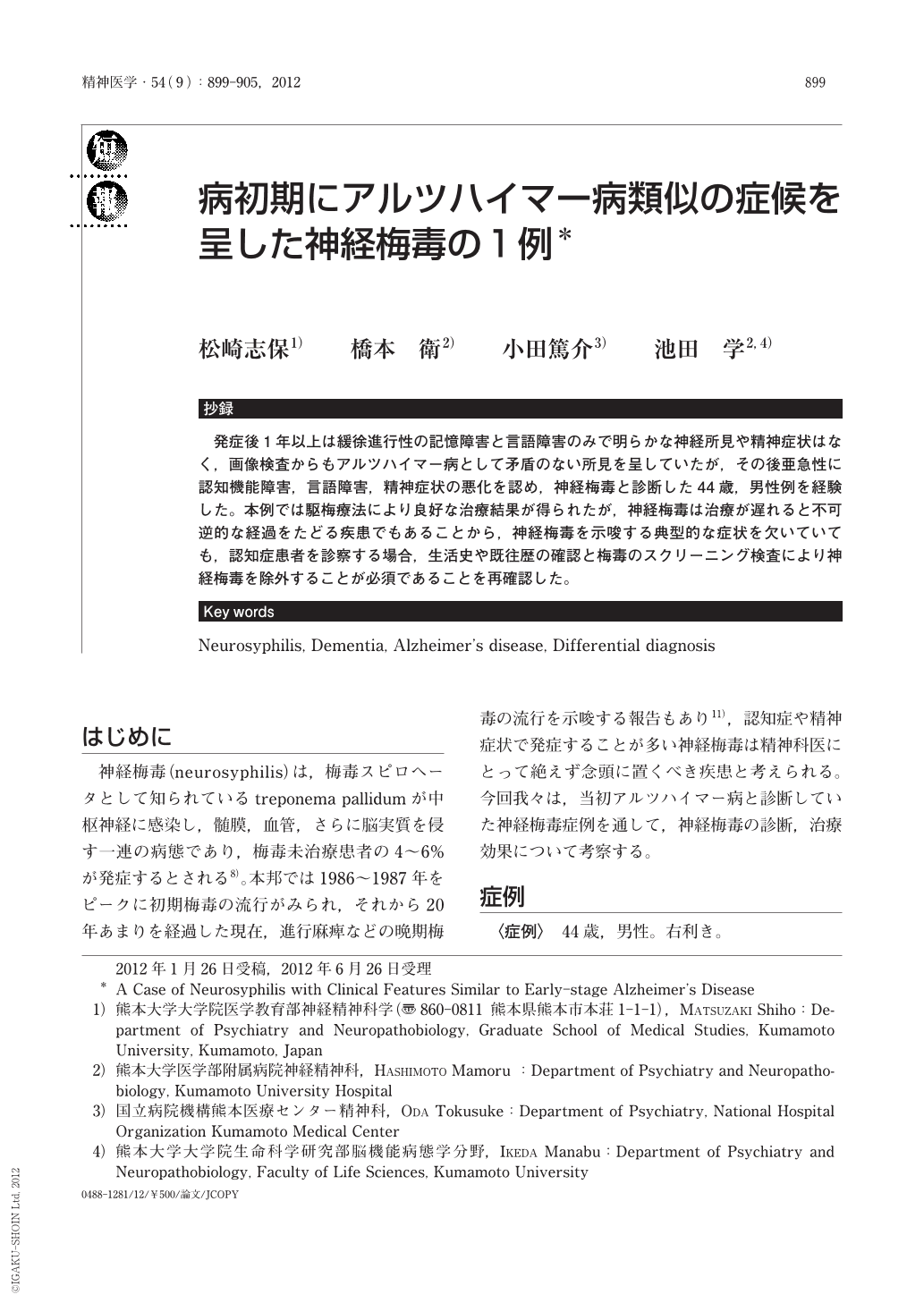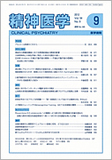Japanese
English
- 有料閲覧
- Abstract 文献概要
- 1ページ目 Look Inside
- 参考文献 Reference
抄録
発症後1年以上は緩徐進行性の記憶障害と言語障害のみで明らかな神経所見や精神症状はなく,画像検査からもアルツハイマー病として矛盾のない所見を呈していたが,その後亜急性に認知機能障害,言語障害,精神症状の悪化を認め,神経梅毒と診断した44歳,男性例を経験した。本例では駆梅療法により良好な治療結果が得られたが,神経梅毒は治療が遅れると不可逆的な経過をたどる疾患でもあることから,神経梅毒を示唆する典型的な症状を欠いていても,認知症患者を診察する場合,生活史や既往歴の確認と梅毒のスクリーニング検査により神経梅毒を除外することが必須であることを再確認した。
A 44-year-old right-handed man presented with slowly progressive amnesia that had lasted for a year.
A physical examination revealed recent memory disturbance and word-finding difficulty. There were no neurological symptoms and behavioral changes. Magnetic resonance imaging showed mild cortical atrophy with bilateral hippocampal atrophy, and single-photon emission computed tomography revealed hypoperfusion in both frontal lobes and temporal lobes, predominantly on the left side. He was diagnosed as having mild Alzheimer's disease on the basis of the clinical symptoms and the neuroimaging findings. For 6 months after the first consultation, his cognitive function deteriorated rapidly deteriorated and he showed severe behavioral disturbances. On the basis of a cerebrospinal fluid examination, he was re-diagnosed as having neurosyphilis. High-dose penicillin treatment improved both his behavioral disturbances and cognitive dysfunction. The findings in the present case suggest that syphilis screeing should be an essential part of the medical examination of patients showing even mild dementia.

Copyright © 2012, Igaku-Shoin Ltd. All rights reserved.


